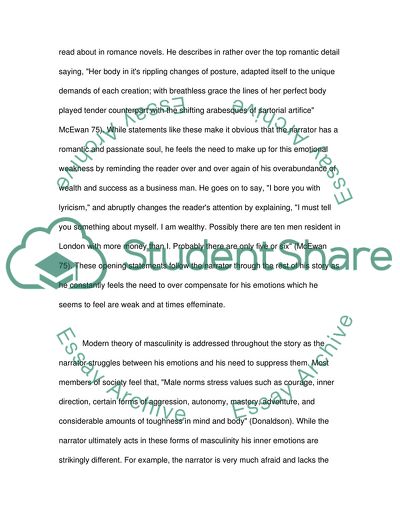Cite this document
(In Between Masculinity and Society - Ian McEwan's Dead as They Come Essay, n.d.)
In Between Masculinity and Society - Ian McEwan's Dead as They Come Essay. https://studentshare.org/literature/1728895-critical-analysis-of-dead-as-they-come-ian-mcewan
In Between Masculinity and Society - Ian McEwan's Dead as They Come Essay. https://studentshare.org/literature/1728895-critical-analysis-of-dead-as-they-come-ian-mcewan
(In Between Masculinity and Society - Ian McEwan'S Dead As They Come Essay)
In Between Masculinity and Society - Ian McEwan'S Dead As They Come Essay. https://studentshare.org/literature/1728895-critical-analysis-of-dead-as-they-come-ian-mcewan.
In Between Masculinity and Society - Ian McEwan'S Dead As They Come Essay. https://studentshare.org/literature/1728895-critical-analysis-of-dead-as-they-come-ian-mcewan.
“In Between Masculinity and Society - Ian McEwan'S Dead As They Come Essay”. https://studentshare.org/literature/1728895-critical-analysis-of-dead-as-they-come-ian-mcewan.


